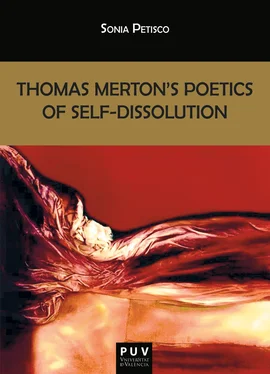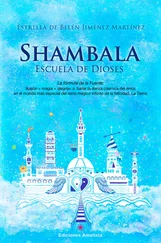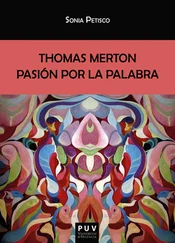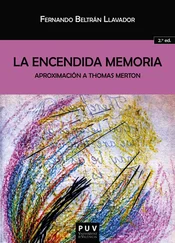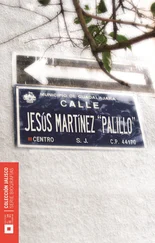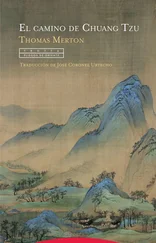THE POET, TO HIS BOOK
Now is the day of our farewell in fear, lean pages:
And shall I leave some blessing on the half of me you have devoured?
Were you, in clean obedience, my Cross,
Sent to exchange my life for Christ’s in labor?
How shall the seeds upon those furrowed papers flower?
Or have I only bled to sow you full of stones and thorns,
Feeding my minutes to my own dead will?
Or will your little shadow fatten in my life’s last hour
And darken for a space my gate to white eternity?
And will I wear you once again, in Purgatory,
Around my mad ribs like a shirt of flame?
Or bear you on my shoulders for a sorry jubilee
My Sinbad’s burden?
Is that the way you’d make me both-ways’ loser,
Paying the prayers and joys you stole of me,
You thirsty traitor, in my Trappist mornings!
Go, stubborn talker,
Find you a station on the loud world’s corners,
And try there, (if your hands be clean) your length of patience:
Use there the rhythms that upset my silences,
And spend your pennyworth of prayer
There in the clamor of the Christless avenues:
And try to ransom some one prisoner
Out of those walls of traffic, out of the wheels of that unhappiness! 19
Eventually, Merton began to realize that contemplative life within his community could degenerate into a ritualistic and, sometimes, superficial religiosity. By the end of the fifties this awareness led him to experience an intense vocational crisis, “a war in my own gut” as he himself describes it in “The Sting of Conscience.” This thrilling, complex, sharp, and subtle reflection was censored because it was considered “neurotic,” so in the beginning it was not published, despite being – according to Merton — one of his best creations. It was written as a response to the biting attack that the British writer Graham Greene launched in The Quiet American against non-action in the midst of a world full of injustice. A close reading of it reveals Merton’s innermost wish to transcend the attitude of mere bystander and to get involved more actively in the problems of the world. 20
THE STING OF CONSCIENCE
You have written, Greene, in your last book
The reasons why I so hate milk.
You have diagnosed the war in my own gut
Against the innocence, yes, against the dead mother
Who became, some twenty years ago,
My famous refuge.
This one place that claims to know peace,
This is the very den
Where most damage is planned and done.
O, there are quiet ones among us
And I live with the quietest of all.
Here we are, victims, making all the trouble
Loving the pity and the ignorance
With which the light stands firm
On our most righteous candlestick.
And now your book has come
To plague the hapless conscience of the just
While war boils in my own hard-praying heart.
Not out of charity,
Rather out of idleness do we refuse to hate.
O, if I were less desperately meek
And could win back some malice, once again
And tell the people what I mean
I would perhaps hate them less
For having so loved me.
I know: the decision is fatally made.
I shall never return. I cannot reach again
Those dear bad shores, to which prolific life
Is not altogether alien.
I cannot see again
The world of lively, prodigal sin!
Yet look, Greene! See Christ there,
Not in this innocent building,
But there, there, walking up and down,
Walking in the smoke and not in our fresh air,
But there, there, right in the middle
Of the God-hating sinners!
But here I stand, with my glass in my hand
And drink the pasteurized beatitudes
And fight the damned Ohio in my blood!
***
Tell me, at last, Greene, if you can
Tell me what can come of this?
Will I yet be redeemed, and will I
Break silence after all with such a cry
As I have always been afraid of?
Will I so scandalize these innocents
As to be thrown clean out of the wide-eyed dairies
And land in heaven with a millstone round my neck? 21
Throughout these lines one can understand the deep spiritual debate and the furious contest Merton held against his own image as writer of pious works. He adopts a harsh critical attitude against the general inactivity, idleness and ignorance of his own monastery, and against a Church no longer able to respond to the passage of time. There is even a moment within the composition when he seems to regret having made the decision of becoming a monk. The struggle within himself gained mounting intensity, as shown in the following poem, with lines full of melancholic touches. One can get a glimpse of his long and contradictory deliberation, bare and vivid as ever. 22
WHETHER THERE IS ENJOYMENT IN BITTERNESS
This afternoon, let me
Be a sad person. Am I not
Permitted (like other men)
To be sick of myself?
Am I not allowed to be hollow,
Or fall in the hole
Or break my bones (within me)
In the trap set by my own
Lie to myself? O my friend,
I too must sin and sin.
I too must hurt other people and
(Since I am no exception)
I must be hated by them.
Do not forbid me, therefore,
To taste the same bitter poison,
And drink the gall that love
(Love most of all) so easily becomes.
Do not forbid me (once again) to be
Angry, bitter, disillusioned,
Wishing I could die.
While life and death
Are killing one another in my flesh
Leave me in peace. I can enjoy,
Even as other men, this agony.
Only (whoever you may be)
Pray for my soul. Speak my name
To Him, for in my bitterness
I hardly speak to Him: and He
While He is busy killing me
Refuses to listen. 23
With the venerable depth which distinguishes him as thinker and homo religiosus , Merton prepares himself to fight the only battle worth fighting: the battle against the falseness of his own self and against the accumulation of powerful and overwhelming lies of reality as a whole. This bitter struggle became a source of inspiration for most of the critical poetry he wrote in the sixties about a wide range of contemporary problems affecting a disturbed and unbalanced society. Books such as Emblems of a Season of Fury, Cables to the Ace , or The Geography of Lograire appeared as an inexorable denunciation of the confusion and error which reigns in the so called Western culture and of the misunderstanding prevailing in all its political, religious, philosophical and scientific heritage. They disclose a profound yearning on the part of the poet for unlearning, for not knowing. Killing knowledge means killing death, we are told, in a somewhat axiomatic manner.
Understandably, then, the following poems by Merton are specifically rooted in the rich apophatic Christian mystical tradition as well as in Zen Buddhism. 24In the first one we listen to him talking with great simplicity about the incompatibility and perpetual contradiction of “being,” or “self” and “life.” This seems a mystery which embraces and burns itself out in what is beyond consciousness, as Merton also conceived it in his book New Seeds of Contemplation: “Contemplation is precisely the awareness that this ‘I’ is really ‘not I’ and the awakening of the unknown ‘I’ that is beyond observation and reflection and is incapable of commenting upon itself.” 25His true nature lies in being hidden, anonymous and not being identified within society, where people talk about themselves and about one another.
The next poem is entitled “Night-Flowering Cactus,” and it conveys the atmosphere of a quiet and silent night, of a rare joy afire with the plenitude of the void:
Читать дальше
